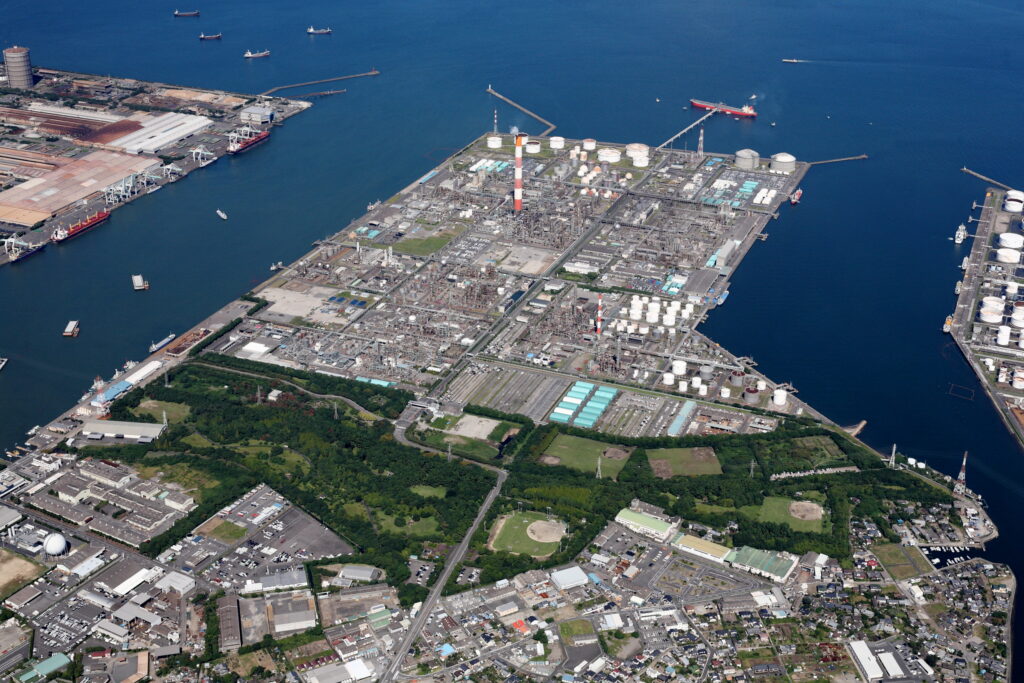
- Neste provides renewable Neste RE, a raw material for olefins and derivatives production at Resonac
- Resonac produces renewable olefins and derivatives at its Oita Complex in Japan to meet demand of domestic and overseas markets
- Marubeni coordinates logistics and supply chain from Neste to Resonac

Resonac Corporation, Neste and Marubeni Corporation have entered into a cooperative agreement to enable the production of renewable olefins and derivatives. The cooperation involves Neste RE™, a Neste-produced renewable raw material, being used to manufacture products at leading Japanese chemical company Resonac’s Oita Complex in Japan. Marubeni, a major Japanese general trading and investment conglomerate, will coordinate all logistical arrangements from Neste to Resonac.
Renewable Neste RE is a bio-based feedstock used in steam crackers. It is made from 100% renewable raw materials such as waste and residue oils and fats. Consisting of pure hydrocarbons, Neste RE can be used to replace conventional feedstock such as fossil naphtha in chemicals value chains, contributing to a reduction in greenhouse gas (GHG) emissions.
“Replacing fossil resources in the production of plastics is one of the major challenges the industry faces. We are excited to team up with Marubeni and Resonac in tackling this challenge. The sustainability transformation requires committed frontrunners and that is exactly what Marubeni and Resonac are,” says Carrie Song, Senior Vice President, Commercial, Renewable Products at Neste.
“We are excited to embark on a project to build the value chain for renewable chemicals, partnering with Neste, the world’s leading renewable feedstock supplier, and Resonac, a leading chemical company in Japan. We aim to contribute to the carbon neutrality of the petrochemical industry by establishing a trade flow of diverse renewable feedstocks in addition to conventional raw materials,” says Yoshiaki Yokota, Chief Executive Officer Energy & Infrastructure Solution Group at Marubeni.
“We are very happy to work cooperatively with Neste and Marubeni to cater to the need for renewable olefins and derivative products in the market. Resonac’s Oita Complex has been ISCC PLUS certified. The Oita Complex will continue providing the market with renewable olefins and derivative products by applying a mass balance method based on the ISCC system,” states Hirotsugu Fukuda, General Manager of the Olefins & Derivatives Business Unit at Resonac Corporation.
About Resonac
The Resonac Group is a group of chemical companies that produces and sells products related to semiconductor and electronic materials, mobility, innovation enabling materials, chemicals, etc. The Group possesses a wide variety of material resources and advanced material technologies applicable to the midstream to downstream of the supply chains of various products. In January 2023, the Showa Denko Group and the Showa Denko Materials Group (former Hitachi Chemical Group) merged into the Resonac Group and made a start as a new corporate group. The new trade name “RESONAC” was created as a combination of two English words, namely, the word of “RESONATE” and “C” as the first letter of CHEMISTRY. As a “co-creative chemical company,” Resonac aims to continue growing and enhance its corporate value through co-creation. The Group recorded net sales of about 1,300 billion yen in 2023, and its overseas sales accounted for 53% of net sales. The Group has deployed production/sales bases in 22 countries and regions, and continues operating its business globally (as of February 2024). For more details, please refer to the Resonac Group’s Website.
About Neste
Neste (NESTE, Nasdaq Helsinki) creates solutions for combating climate change and accelerating a shift to a circular economy. The company refines waste, residues and innovative raw materials into renewable fuels and sustainable feedstock for plastics and other materials.
As the world’s leading producer of sustainable aviation fuel and renewable diesel and a forerunner in developing renewable and circular feedstock solutions for polymers and chemicals, Neste helps its customers to reduce their greenhouse gas emissions by at least 20 million tons annually by 2030.
The company’s ambition is to make the Porvoo oil refinery in Finland the most sustainable refinery in Europe. Neste is committed to reaching carbon-neutral production by 2035, and will reduce the carbon emission intensity of sold products by 50% by 2040. Neste has also set high standards for biodiversity, human rights and the supply chain. The company has consistently been included in the Dow Jones Sustainability Indices and the Global 100 list of the world’s most sustainable companies. In 2023, Neste’s revenue stood at EUR 22.9 billion.
About Marubeni
Marubeni Corporation and its consolidated subsidiaries use their broad business networks, both within Japan and overseas, to conduct importing and exporting (including third country trading), as well as domestic business, encompassing a diverse range of business activities across wide-ranging fields including lifestyle, IT solutions, food, agri business, forest products, chemicals, metals & mineral resources, energy, power, infrastructure project, aerospace & ship, finance, leasing & real estate business, construction, industrial machinery & mobility, next generation business development and next generation corporate development. Additionally, the Marubeni Group offers a variety of services, makes internal and external investments, and is involved in resource development throughout all of the above industries.
Source
Resonac, Neste, Marubeni, joint press release, 2024-05-28.
Supplier
Marubeni
Neste Corporation
Resonac
Share
Renewable Carbon News – Daily Newsletter
Subscribe to our daily email newsletter – the world's leading newsletter on renewable materials and chemicals










